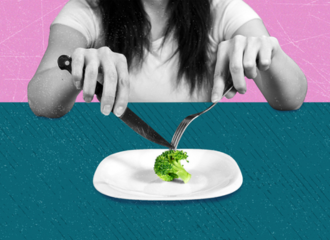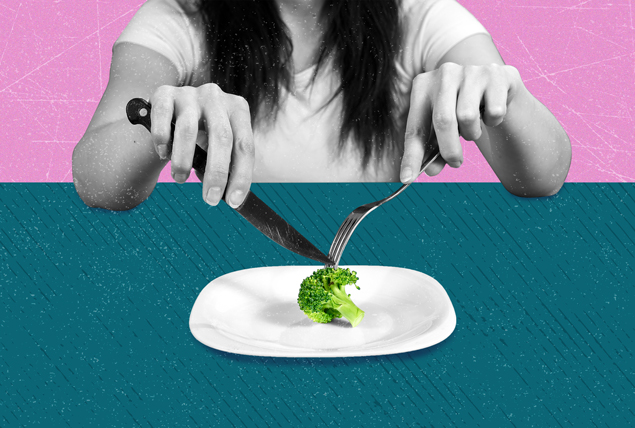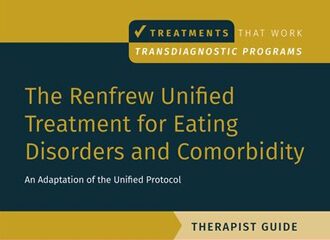Polycystic ovary syndrome (PCOS) can profoundly impact a woman’s health and quality of life. PCOS is a primary cause of female infertility, acne and irregular menstruation, but its effects are often broader.
Unusual symptoms of PCOS include gaining weight in spite of a healthy diet, unwanted hair growth or excessive hair (hirsutism), and painful periods. Women with PCOS also appear to have a higher prevalence of developing eating disorders, being three times more susceptible than people without it, according to a 2016 study.
People with PCOS experience weight gain in areas that include the abdomen and hips, but they may also find their face shape changes. Additionally, obesity-related insulin resistance can increase the risk of fat deposits in the liver, which can lead to fatty liver disease, Jaisinghani said.
Dieting, restriction and exercise are commonly prescribed to help people with PCOS lose weight and improve insulin sensitivity. However, this can increase a person’s risk of an eating disorder, said Holly Willis, M.S.N., a psychiatric nurse practitioner and eating disorder specialist at the Renfrew Center’s Atlanta location.
“Engaging in any form of eating that is not intuitive and enjoyable increases the risk for developing an eating disorder and disrupting one’s relationship with food,” Willis said.
Click here to read the full article.




